What Questions to Ask When Moving Departments?
Important questions you should ask before moving Society for Human Resource Management departments. The right questions can help you make a smart move that boosts your career and keeps you happy at work. You'll want to ask about the job duties, team culture, growth chances, and what your new boss expects.
Why Moving Departments Matters
Changing departments is a big deal in your work life. It's like moving to a new neighborhood - you want to know what you're getting into before you pack up and go. An internal transfer can be a viable solution when you've been in the same role for years and are struggling to stay motivated, or when you love your company but realize your particular job doesn't use your skills to their full potential.
According to theU.S. Bureau of Labor Statistics, the average worker stays in their job for about 4.1 years, making internal mobility an important factor in career development. When you move departments, you're not just changing your daily tasks. You're switching teams, learning new ways of doing things, and maybe even working in a different part of the building. That's why asking the right questions is so important.
The Smart Way to Think About Department Moves
Before you start asking questions, think about why you want to move. Are you genuinely excited by the new opportunity, are you just bored, or are you dissatisfied with your current manager? Those aren't great reasons for initiating an internal move, so be honest with yourself about your motives.
Good reasons to move departments include:
- You want to learn new skills
- The new job fits your career goals better
- You need a fresh challenge
- Your family situation changed
- You want to work with a different team
Questions About the Job Itself
What Will I Do Every Day?
This seems simple, but it's the most important question. Ask for a detailed list of daily tasks. Don't just accept "you'll handle marketing stuff" as an answer. You want to know:
- What does a typical day look like?
- Which tasks take up most of your time?
- What are the biggest challenges in this role?
- How does this job help the company succeed?
What Skills Do I Need?
Read through the job description in the advertised role thoroughly, identifying the critical skills the new department is seeking from candidates. Then, list your skills and experience that match the new position.
Ask about:
- Technical skills you'll need to learn
- Soft skills that matter most
- Training programs available
- How long it takes to get good at the job
How Will Success Be Measured?
Every job has different ways to measure if you're doing well. In sales, it might be how much you sell. In customer service, it might be how happy customers are. Ask:
- What are the key performance indicators (KPIs)?
- How often will you get feedback?
- What does "doing a great job" look like?
- How do they handle performance reviews?
Questions About the Team and Culture
What's the Team Like?
You have the benefit of (most likely) knowing the hiring manager and the team with whom you'd be working. Is it a team you want to be on, or where you could be successful?
The people you work with can make or break your job experience. Ask about:
- How many people are on the team?
- What are their backgrounds and experience levels?
- How does the team handle conflicts?
- Do people work well together?
What's the Department Culture Like?
Each department has its own personality. Some are fast-paced and competitive. Others are calm and collaborative. Find out:
- How do people communicate with each other?
- What's the work pace like?
- Do people socialize outside of work?
- How does the department handle stress?
Who Will Be My Boss?
Your manager has a huge impact on your job satisfaction. Even if you know them already, ask:
- What's their management style?
- How often do they check in with their team?
- What do they expect from their employees?
- How do they handle problems or disagreements?
Questions About Growth and Development
What Are My Career Options?
Internal transfers can help you avoid a high turnover rate, which can be detrimental to employee productivity and morale. By allowing your employees the chance to transfer between departments, you can boost company morale.
Don't just think about your next job - think about the job after that. Ask:
- What career paths are available in this department?
- How do people typically advance?
- What training or education might you need?
- Are there mentorship programs?
Will I Learn New Skills?
Moving departments should help you grow. Ask about:
- What new skills you'll develop
- Training programs available
- Conferences or workshops you can attend
- How the company supports learning
Questions About Money and Benefits
What About My Salary?
Once you start the job, it's implied that you accept doing that job for your current salary, so that doesn't put you in a particularly good negotiating position.
Research from Harvard Business Review shows that compensation is a key factor in job satisfaction and retention. Money talks are important. Ask:
- Will your salary change?
- When can you expect raises?
- Are there bonuses or incentives?
- How do they decide on pay increases?
What About My Benefits?
Sometimes changing departments can affect your benefits. Check on:
- Health insurance coverage
- Vacation time policies
- Retirement plan contributions
- Other perks like gym memberships or parking
Questions About the Transition Process
How Will the Move Happen?
Whether the transfer is instigated by the employee or the employer, any kind of transfer is a significant moment of transition in your employee's life.
Moving departments isn't instant. Ask about:
- When would you start?
- How long is the transition period?
- Will you train with someone?
- What happens to your current projects?
What Support Will I Get?
Starting in a new department can feel overwhelming. Ask:
- Who will help you learn the ropes?
- Is there a buddy system?
- What resources are available?
- How long until you're expected to be fully productive?
Questions About Company Policies
What Are the Rules?
Read through the company's transfer policy to find out what's required before requesting your transfer and clarify the internal application process with your human resources representative or hiring manager.
Every company has different rules about department transfers. Ask:
- Do you need to stay in the new department for a certain time?
- Can you move back if it doesn't work out?
- Are there limits on how often you can transfer?
- What paperwork needs to be completed?
How Does This Affect My Current Job?
Don't burn bridges when you move. Ask:
- How much notice do you need to give?
- Will you help train your replacement?
- What happens to your ongoing projects?
- How will your current team be affected?
Questions to Ask Your Current Boss
How Do I Bring This Up?
It's one thing to let your manager know you're interested in transferring positions — it's another entirely to threaten to, or even hint that you'll quit unless you're given the job you have your eye on.
Talking to your current boss about leaving can be tricky. Ask yourself:
- What's the best time to have this conversation?
- How can you frame it positively?
- What if they try to counter-offer?
- How can you leave on good terms?
What About My Current Projects?
Be responsible about your current work. Ask:
- What projects need to be finished first?
- Who will take over your responsibilities?
- How can you help with the transition?
- What timeline works for everyone?
Questions About Long-Term Impact
How Will This Affect My Career?
Think beyond just the next job. Consider:
- How does this move fit your long-term goals?
- Will it open new opportunities?
- Could it limit you in any way?
- What skills will you gain or lose?
What Are the Risks?
It's important to understand the risks and how to successfully manage internal transfers to benefit both employees and the company.
Every move has potential downsides. Think about:
- What if the new job isn't what you expected?
- Could you damage relationships with your current team?
- What if the new department has problems?
- How would this affect your reputation?
Questions About Work-Life Balance
How Will This Change My Schedule?
Different departments often have different schedules. Ask:
- What are the typical work hours?
- Is there flexibility in scheduling?
- How much travel is required?
- Are there busy seasons or quiet periods?
What About Work From Home?
Effective time management in our new hybrid work approach is essential. It can bring a wealth of benefits, not only for a business but also for an employee's work-life balance.
A Gallup study found that employees with flexible work arrangements report higher engagement and job satisfaction. Remote work policies can vary by department. Ask:
- Can you work from home?
- How many days per week?
- What technology do you need?
- How does the team stay connected?
Questions to Ask Other Employees
What's It Really Like?
Make it a point to mingle with colleagues from different departments rather than just staying within your own clique. This way, you can find out more about job openings and market your skills to potential managers informally.
Sometimes the best information comes from people who already work there. Ask:
- What do they like most about the department?
- What are the biggest challenges?
- How supportive is management?
- Would they recommend the move?
What Should I Know?
Insider knowledge can be valuable. Ask:
- Are there unwritten rules?
- What mistakes should you avoid?
- Who are the key people to know?
- What's the department's reputation in the company?
Questions About Professional Development
What Training Is Available?
Internal mobility plays a key role in increasing employee tenure and driving internal promotions. However, a structured approach is essential to make this process effective.
The Society for Human Resource Management reports that companies with strong internal mobility programs see 41% longer employee tenure. Good departments invest in their people. Ask:
- What training programs exist?
- Do they pay for outside courses?
- Are there mentorship opportunities?
- How do they support professional growth?
What About Certifications?
Some jobs require or benefit from certifications. Ask:
- What certifications are helpful?
- Will the company pay for them?
- How much time can you spend on studying?
- Are there internal training programs?
Making Your Final Decision
Weighing Your Options
After asking all these questions, you need to make a decision. Consider:
- Do the answers match what you want?
- Are there any red flags?
- How does this compare to staying put?
- What does your gut tell you?
Getting Everything in Writing
I'd push for getting the raise and change in job title and/or responsibilities with an official start date in writing before starting the new job.
Before you make the move, make sure you have:
- Job description and expectations
- Salary and benefits details
- Start date and transition plan
- Performance expectations
Tips for a Successful Department Transfer
Before You Move
- Do your homework about the new department
- Build relationships with people in the new team
- Finish your current projects well
- Create a transition plan for your replacement
During the Transition
- Be patient with yourself as you learn
- Ask questions when you're unsure
- Stay positive and professional
- Keep communication open with both teams
After You Move
- Give yourself time to adjust
- Build new relationships
- Learn the department's culture
- Stay connected with your old team
Common Mistakes to Avoid
Don't Rush the Process
It's hard to wait for a response when you want to hear it ASAP, but something as big and potentially complex as an internal transfer requires a lot of thought on the part of your current manager, your potential new manager, the HR team and more.
MIT Sloan Management Review research indicates that rushed internal transfers have a 35% higher failure rate than those planned carefully. Take time to:
- Research thoroughly
- Ask all your questions
- Consider all factors
- Make a thoughtful decision
Don't Burn Bridges
Moving departments doesn't mean you should cut ties with your old team. Remember:
- You might need their help later
- They could be valuable references
- You might work together again
- Maintaining relationships is always good
Don't Assume Anything
Even if you think you know what the new job involves, ask anyway. Things change, and you want current information.
Final Thoughts
Moving departments can be a great way to grow your career and find new challenges. But it's not a decision to make lightly. By asking the right questions, you can make sure you're making a smart move that helps you succeed.
Remember, the goal isn't just to get a new job - it's to find a role that fits your skills, interests, and career goals. Take your time, do your research, and don't be afraid to ask tough questions. Your future self will thank you for being thorough.
Whether you're looking to climb the career ladder, learn new skills, or just need a change of scenery, asking these questions will help you make the best decision for your situation. A successful department transfer can open doors to new opportunities and help you build a career you love.
The key is being prepared, staying professional, and thinking about both the short-term and long-term impact of your decision. With the right approach and the right questions, your department transfer can be the start of an exciting new chapter in your careeR



